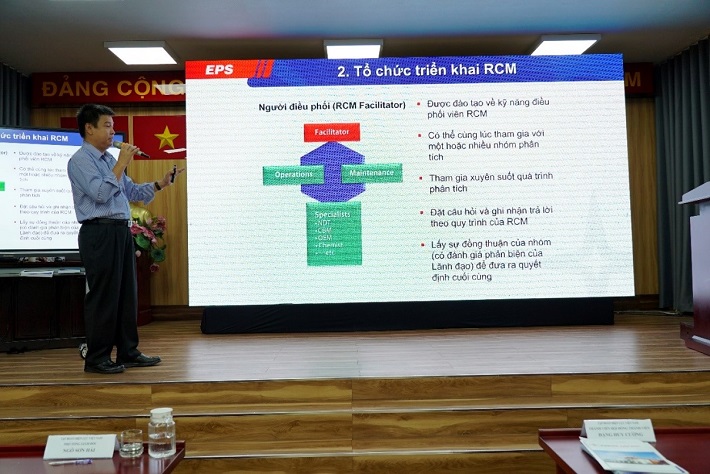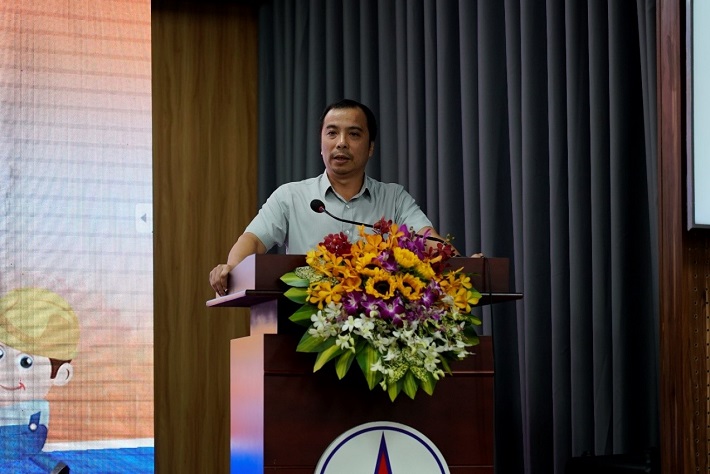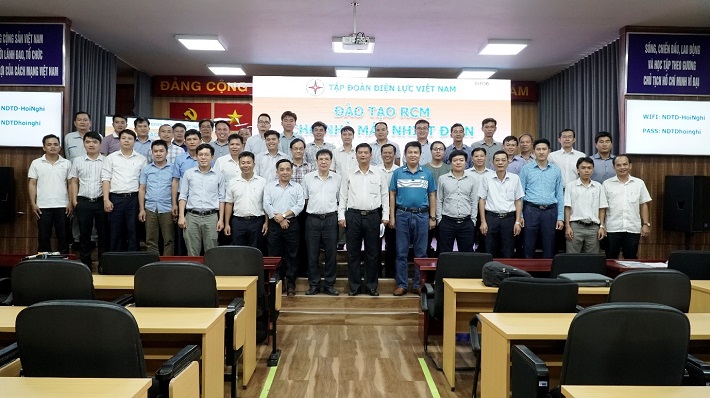Khang Truong Thinh Company Limited (KTT) has cooperated with EVNGENCO 3 Power Service Company (EPS) to prepare content and conduct RCM awareness training for EVN thermal power plants.

Mr Tran Ngoc Dang Thi - KTT deputy director presented at the training course
RCM training program for thermal power plants was divided into 2 phases, taking place at the Thu Duc Power Plant Hall (HCMC).
Phase 1 was implemented from September 8-11 for the following Corporations/ Companies: EVN GENCO 2, EVN GENCO 3; Companies / Thermal power plants: Hai Phong, Pha Lai, Can Tho, Mong Duong, Ninh Binh, Vinh Tan 2, Phu My, Ba Ria.
Phase 2 was implemented from September 22-25 for the following Corporations/ Companies: EVN GENCO1; Companies / Thermal Power Plants: Uong Bi, Quang Ninh, Duyen Hai, Nghi Son, Vinh Tan 4, Thai Binh, Thu Duc, EVN PSC, EVN ICT. Especially with the participation of Mr. Dang Huy Cuong - Member of EVN Management Council, Mr. Ngo Son Hai - Deputy General Director of EVN, Manager of EVN Engineering - Production Division, General Director / Deputy General Director of Power Generation Corporations, Director / Deputy Directors of Thermal Power Plants, EVN EPS, and EVN ICT.
Mr. Ngo Son Hai - Deputy General Director of EVN spoke at the training course: “EVN has enough potential in finance, technology, human resources ... to deploy RCM. However, in order to successfully implement RCM, it is very necessary to change the thinking, working philosophy, outdated processes/procedures of all leaders, managers, and employees of thermal power plants. Through this training course, it does not only help the trainees get acquainted with the RCM but also help the trainees understand more deeply the subtance of problem when applying RCM in maintenance.

Mr Ngo Son Hai - Deputy General Director of EVN spoke at the training course
However, RCM training is a long term program. Therefore, in order to effectively implement RCM, Mr. Ngo Son Hai also suggested that, after this course, Corporations / Companies / Factories also need to actively organize suitable training in order to faster and more effective deployment of RCM in the coming time. In addition, it is necessary to build learning programs and benchmarking with domestic and foreign companies that have effectively implemented the RCM.

Attendants of this training course



